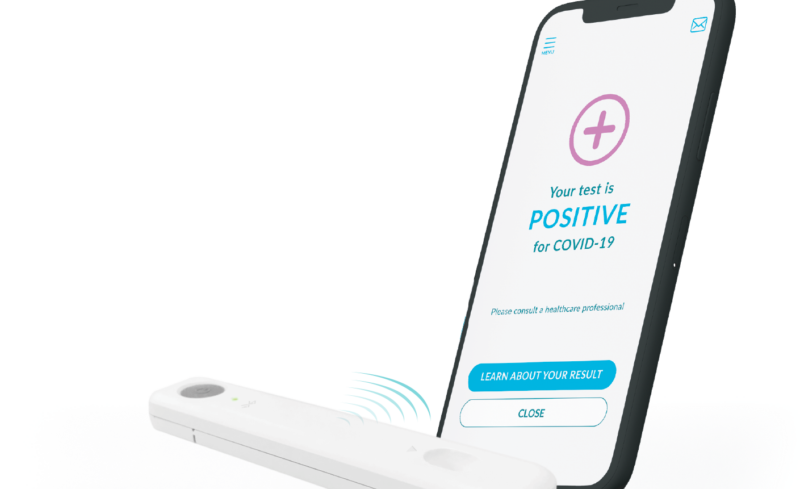
The FDA's ability to issue Emergency Use Authorizations isn't limited to treatments; the administration can also hand them out for medical equipment and tests. And today, it approved the first over-the-counter, at-home SARS-CoV-2 test kit. The kit detects the presence of a protein found on the surface of the virus and sends the results to a user's smartphone via a Bluetooth connection. While it's less accurate than the diagnostic approaches used by large testing centers, the FDA cited an accuracy of over 90 percent when issuing the authorization.
This isn't the first at-home test kit given approval by the FDA. In November, the FDA issued an Emergency Use Authorization to a company called Lucira, which is offering a test that requires a prescription. Lucira's test is based on sensing the virus's genetic material, using a series of enzyme-catalyzed reactions that work at room temperature.
The new test comes from a company called Ellume and is based on identifying the presence of one of the virus's proteins. Typically, these tests rely on the use of antibodies to the protein, typically linked to a chemical that can induce a color change; Ellume tags its antibodies with fluorescent quantum dots. The sample—in Ellume's case, a swab of material from the nose—flows across the device while mixing with antibodies, producing a change in color at a specific location on the device.
Ellume's device then converts the color change into a signal that is transmitted via Bluetooth to a user's cell phone, typically within 15 minutes. The app will then alert the user and offer to transmit the results to local health authorities. (The FDA's documents seem to indicate this reporting is mandatory; we've reached out to the company for clarification and will update if we receive it.)
Antibody tests are generally less sensitive than those based on genetic materials, but Ellume's data looks good. In individuals with symptoms, it correctly identified 96 percent of the SARS-CoV-2 positive cases and produced no false positives. In symptom-free individuals, who generally have lower viral loads, it correctly identified 91 percent of those infected, while producing false positives at a rate of 4 percent. Those numbers sound great, but according to an Ellume press release, they're based on a trial with only 198 test subjects, so the confidence intervals are likely to be fairly large.
“Self-isolate and seek additional care”
The FDA notes that some degree of erroneous test results occur in all forms of antibody-based testing, and users should treat results with appropriate caution. "The FDA reminds patients that all tests can experience false negative and false positive results" its authorization document reads. "Individuals with positive results should self-isolate and seek additional care from their health care provider. Individuals who test negative and experience COVID-like symptoms should follow up with their health care provider as negative results do not preclude an individual from SARS-CoV-2 infection."
Ellume is based in Australia and is expanding its manufacturing there while trying to build up a US-based capacity. It acknowledges the help of a grant from the US National Institutes of Health that enabled the rapid development of COVID-specific tests based on technology it had developed for influenza testing.
Listing image by Ellume
reader comments
120